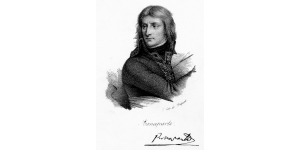Alexander the Great is widely regarded as one of the greatest military leaders in history. But what is often overlooked is the fact that he was also an exceptional leader, who possessed a set of skills that allowed him to inspire, motivate and guide his troops to achieve greatness. In this blog post, we will explore Alexander’s top leadership skills and how they contributed to his success.

Vision
One of the most important leadership skills that Alexander possessed was vision. He had a clear idea of what he wanted to achieve, which was to create a vast empire that would span from Europe to Asia. He was able to communicate this vision to his troops and inspire them to follow him into battle. Alexander’s vision was not just about conquest, but also about creating a new world order that would be based on Greek culture and civilization. He believed that his conquests would bring enlightenment to the world, and this vision motivated his troops to fight with passion and determination.
Courage
Alexander was a fearless leader who led from the front. He was always willing to take risks and was not afraid of facing his enemies in battle. He was known to be the first to charge into battle, and his troops admired his bravery and determination. Alexander’s courage inspired his troops to follow him into battle, even when the odds were against them.
Adaptability
Another important leadership skill that Alexander possessed was adaptability. He was a master of adapting to changing circumstances and was able to change his tactics and strategies depending on the situation. This allowed him to overcome even the most challenging of obstacles. For example, when he faced the elephant armies of King Porus in India, he adapted his tactics by using his cavalry to attack the elephants’ legs, which brought them down and allowed his infantry to finish them off. Alexander’s ability to adapt to changing circumstances allowed him to stay ahead of his enemies and emerge victorious in battle.
Communication
Alexander was an excellent communicator who could connect with his troops and inspire them to give their best. He was able to articulate his ideas clearly, which helped his troops to understand his vision and goals. He was also known to be a great orator, and his speeches would inspire his troops to fight with passion and courage. Alexander’s ability to communicate effectively with his troops was one of the key factors that helped him to build a loyal and dedicated army.
Decisiveness
Alexander was a decisive leader who was not afraid of making tough decisions. He knew how to weigh the risks and benefits of different options and was able to make quick decisions, which helped him to stay ahead of his enemies. For example, when he faced the revolt of his troops at the Hyphasis River in India, he made the tough decision to turn back and abandon his plans to conquer the easternmost parts of India. This decision was not popular with his troops, but it was the right one, and it allowed him to preserve his army and return home safely.
Strategic thinking
Alexander was a strategic thinker who was always looking for ways to outmaneuver his enemies. He was able to anticipate their moves and plan his own accordingly, which helped him to gain the upper hand in battle. For example, when he faced the Persian army at the Battle of Gaugamela, he used a feint to draw the Persians into a trap, which allowed his army to attack their flank and win a decisive victory. Alexander’s strategic thinking allowed him to win battles against much larger armies and emerge victorious in the end.
Empathy
Finally, Alexander was an empathetic leader who cared about his troops. He was always willing to listen to their concerns and take their feedback into account. This helped him to build a loyal and dedicated army, who would follow him even when the going got tough.
In conclusion, Alexander the Great was not just a great conqueror, but also a great leader. His exceptional leadership skills, including vision, courage, adaptability, communication, decisiveness, strategic thinking, and empathy, allowed him to build a loyal and dedicated army that would follow him anywhere. Alexander’s ability to inspire his troops to achieve greatness was the key to his success, and his legacy continues to inspire leaders today. By studying his leadership skills and applying them to our own lives, we can all learn to become better leaders and achieve greatness in our own fields.










